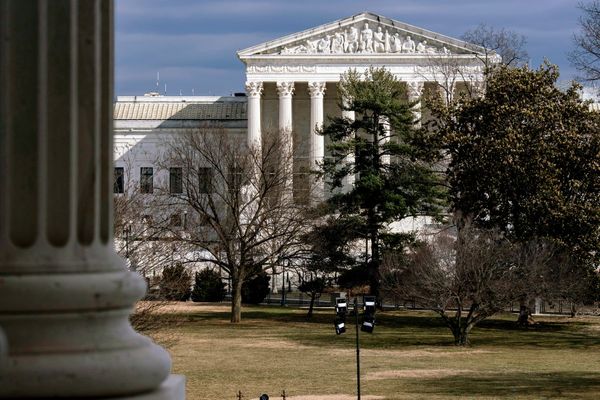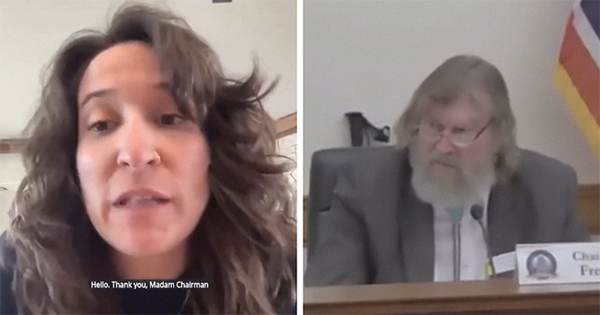When I wrote two weeks ago that medical care after miscarriage or ectopic pregnancy is not abortion, I received a lot of emails from people who remain confused about how the reversal of Roe v. Wade will affect health care provided to women in those difficult and tragic circumstances.
The upshot is that it shouldn’t. But there are reasons for the confusion — some understandable and others dubious.
Some of the drugs used to induce abortions are the same or similar to those given to women who have or will imminently experience pregnancy loss.
Methotrexate, a cheap and common cancer drug also used to treat a number of auto-immune disorders, seems to be the one garnering all the attention right now.
That’s because it is also prescribed in high doses to treat ectopic pregnancy, a condition that occurs when a fertilized egg transplants outside the uterus, where it cannot grow or survive and puts the mother’s health and future fertility at risk.
Like many other drugs, methotrexate is highly regulated.
In the case of ectopic pregnancy, there are exacting criteria for its use, including the size of the gestation visualized (it is only used very early during pregnancy) and certain hormone levels. It is also administered via shot and in a clinical setting.
Yet, some doctors are reportedly hesitant to prescribe methotrexate to female patients in states with abortion bans, even those for whom the drug has long been used in much lower doses to treat other conditions.
Such hesitancy appears to occur for two reasons: doctors and pharmacists, unfamiliar with the laws in the states where they are licensed, are being overly cautious in the post-Roe environment; or some doctors are adamantly pro-abortion and using their medical degrees as a cudgel to promote its cause.
In Texas, methotrexate is named in the state health and safety code as an “abortion-inducing drug.” It may not be prescribed to a pregnant patient after seven weeks’ gestation, after which, some studies show, the risk of complications begins to increase.
But that legal definition also expressly allows for its use, along with any substance “that may be known to cause an abortion but is prescribed, dispensed, or administered for other medical reasons.”
In the case of ectopic pregnancy, those reasons are obvious, as they are in the cases of millions who receive the drug for non-pregnancy related issues.
So why are we hearing stories such as that of a Texas pharmacist who “initially refused to dispense methotrexate to an 8-year-old girl,” according to the Los Angeles Times?
“There’s all kinds of rumors flying around right now,” said Rep. Stephanie Klick, R-Fort Worth. She sponsored the House version of the Texas law that restricts the use of abortion-inducing pills, in effect since December.
Klick, who is also a registered nurse, likened use of methotrexate to accutane, an effective acne drug also known to cause birth defects. In both cases, the people taking those drugs are prescribed birth control as a precaution.
Nothing about Roe’s collapse changes this medical reality.
Texas’ “trigger law’‘ outlawing abortion doesn’t, either. In fact, it precisely states that the act of removing an ectopic pregnancy is not legally considered an abortion.
And care for ectopic pregnancy is either expressly addressed or, because of its life-threatening nature, naturally included under “necessary medical procedure” provisions in the trigger laws of 13 other states, including Oklahoma, Utah and South Dakota.
“Most states make the distinction between healthcare to save the mother — which is health care treatment — as opposed to abortion, which is the intentional killing of and removal of the unborn child,” said Sue Liebel, the director of state affairs for Susan B. Anthony Pro-life America.
Some overly cautious corporate lawyers see enough ambiguity that they’re reportedly telling doctors to delay treatment until the need is dire. Liebel is working with state lawmakers around the country to help update state abortion laws where necessary, to minimize confusion.
“Some of our older laws were a little bit more vague because we all knew what [miscarriage care and treatment for ectopic pregnancy] meant,” she said. “Going forward, we are going to advise that states write legislation very, very clearly.”
Indeed, unambiguous laws are crucial to preventing the kind of confusion that can delay women getting needed care.
“To say that a post-Roe world will impact a women’s ability to access care is almost a non sequitur,” said Dr. Sandy Christiansen, an OB-GYN and the medical director of a pregnancy resource center in Frederick, Maryland.
That’s because roughly 90 percent of OB-GYNs do not perform abortions, suggesting that many of the do not consider the procedure healthcare.
“If it truly was the mantra of essential women’s healthcare, why are 90 percent not doing it?” she added.
How exactly the pro-abortion movement has rapidly shifted from “safe, legal and rare” to “shout your abortion” and now to “your miscarriage and ectopic pregnancy care are abortion” is astonishing.
But it’s only the messaging that’s changed, not the medical realities.
If the laws are imprecise, they should be modified.
If doctors and pharmacists misunderstand them, they should be educated.
But continuing to conflate abortion with ectopic pregnancy and miscarriage care will have dire consequences.
Peddling such rumors — whether it’s a celebrity or the president doing it — is dishonest. It’s also about as anti-woman as you can get.







